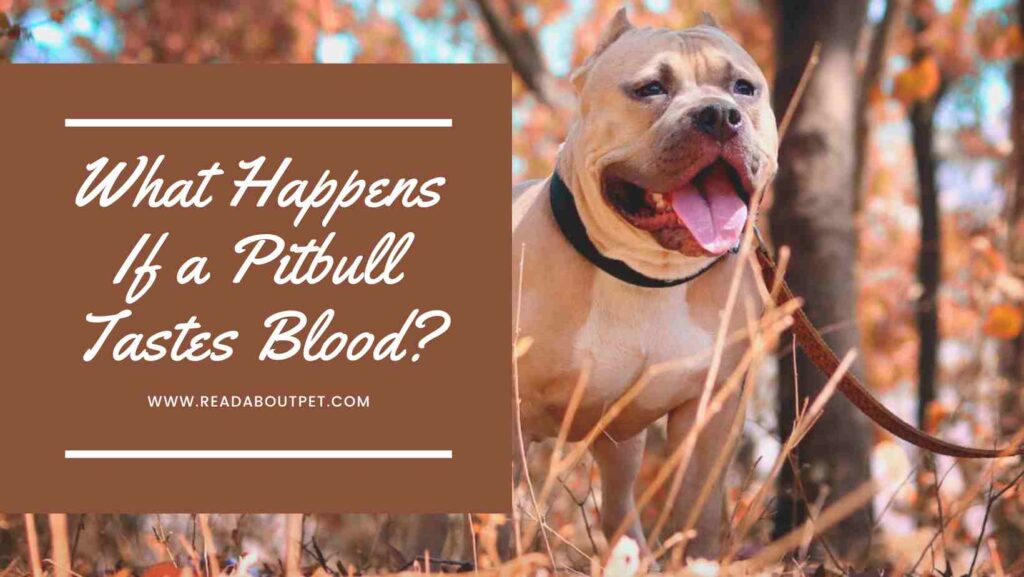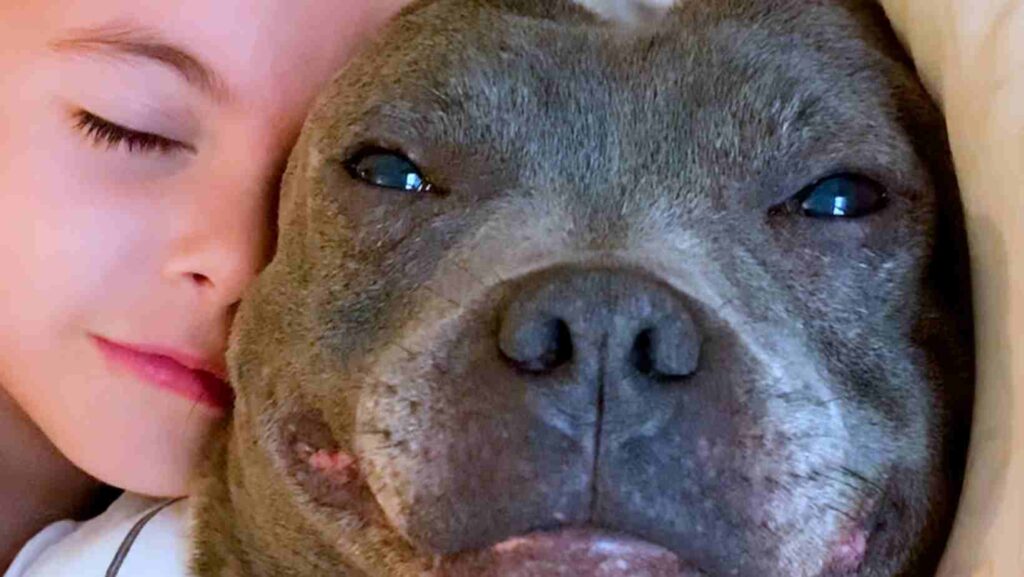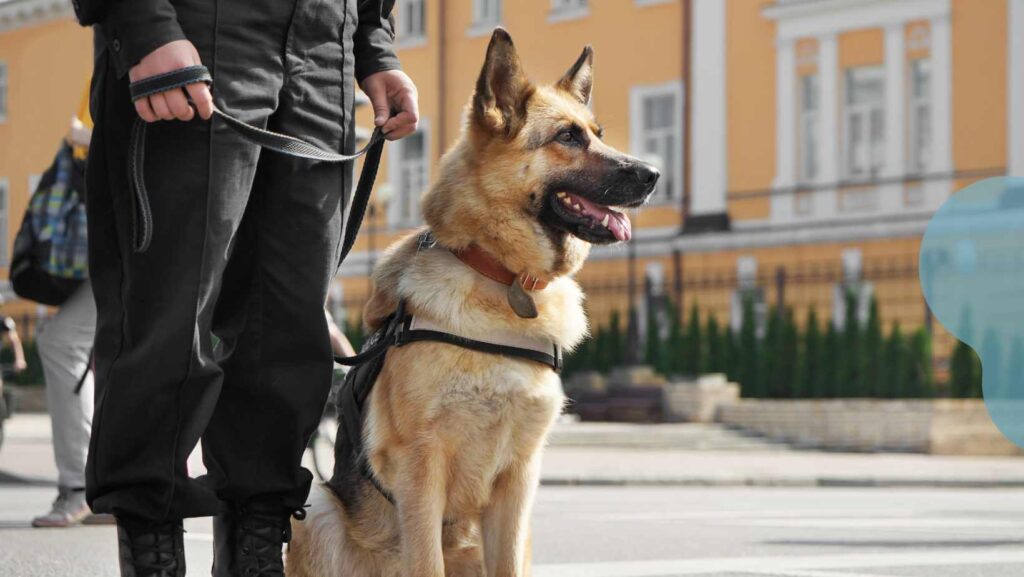Introduction
Dogs are known for their incredible sense of smell, hearing, and taste. These senses help them navigate their environment and make sense of the world around them. However, there may be instances when a dog comes into contact with blood, either accidentally or intentionally. This article investigates what happens when a dog tastes blood. We will also look at the potential effects it has on their behavior and health.
The Senses of Dogs
Before delving into the effects of a dog tasting blood, it’s essential to understand their sensory capabilities. Dogs have a heightened sense of smell, which allows them to detect scents that humans can’t even fathom. Alongside smell, their sense of taste also plays a crucial role in their perception of the world.
Canine Sense of Taste
Dogs possess fewer taste buds compared to humans, but their taste buds are more receptive to certain flavors. They have around 1,700 taste buds, while humans have approximately 9,000.
Dogs prefer meaty and savory flavors. This is due to their evolutionary background as carnivorous animals. Despite the difference in numbers, this preference remains.
Why Dogs May Be Attracted to Blood
Dogs may be attracted to blood for several reasons. But the question is what happens, when a dog tastes blood? These include instinctual behaviors, as well as their sharp sense of smell and taste.
Instinctual Behaviors
Dogs are descendants of wolves, which were natural hunters. The scent of blood triggers their primal instincts, reminding them of prey and activating their predatory behavior. Wolves in the wild rely on hunting and consuming blood for survival. This behavior is likely to be deeply rooted in their genetic makeup.
Smell and Taste
The strong scent of blood can be highly appealing to dogs due to their exceptional olfactory abilities. A dog’s nose is incredibly sensitive.
Estimates say it is 10,000 to 100,000 times more sensitive than a human’s nose. This means that even trace amounts of blood can be detected. When they taste blood, the combination of the scent and the taste might intensify their attraction and curiosity.
Health Concerns
A dog tasting blood can be concerning. However, there are health risks associated what happens when a dog tastes blood. Pet owners should know about these risks.
Bloodborne Pathogens
Blood can carry various pathogens, including viruses, bacteria, and parasites, that can pose a risk to a dog’s health. Diseases like parvovirus, Lyme disease, or Babesia can be transmitted through blood. Consuming blood contaminated with these pathogens can lead to severe illnesses and, in some cases, even be life-threatening for dogs.

Ingesting Blood
Ingesting a significant amount of blood can upset a dog’s stomach and digestive system. Blood is rich in iron, and consuming excessive amounts of it can cause digestive discomfort, vomiting, or diarrhea. Additionally, the presence of blood in the gastrointestinal tract can cause irritation and inflammation, leading to gastrointestinal issues.
Behavioral Changes
Tasting blood can affect a dog’s behavior. This may lead to changes that worry pet owners.
Aggression
Dogs with a strong prey drive may act aggressively when they taste blood. This behavior is known as heightened predatory behavior. Aggression can be directed towards animals or humans. The scent of blood can trigger their natural instincts to pursue and capture prey.
Obsessive Behavior
In certain cases, dogs that have tasted blood may develop obsessive behavior patterns. Animals may become preoccupied with the smell or taste of blood. They may act repetitively, such as excessively licking or pawing the area where they sensed the blood. This obsessive behavior can be a result of their heightened senses and the instinctual drive to focus on potential food sources.
When to Be Concerned
Occasional exposure to blood does not always require immediate attention. However, there are times when it is important to consult a veterinarian.
It is crucial to contact your veterinarian if your dog consumes a large amount of blood. This is especially true if the source is unknown or potentially contaminated. If your dog shows strange behavior or appears sick after tasting blood, get professional help to ensure their wellness.
Preventive Measures
To minimize the risks associated with dogs tasting blood, there are several preventive measures that pet owners can take.
It is essential to keep sharp objects, such as knives or broken glass, out of reach from your dog. This helps to prevent accidental injuries and exposure to blood. Regularly inspect and childproof your surroundings to ensure a safe environment for both you and your pet.
When walking your dog, be alert. Avoid areas that may contain blood, such as hunting grounds or places with recent animal activity. Keeping your dog on a leash and under control can help prevent them from investigating and potentially tasting blood.
Regular veterinary check-ups and vaccinations are important for reducing the risk of bloodborne diseases in dogs. Ensure your dog is up to date with preventive medications, too.
Conclusion
In conclusion, when a dog tastes blood, it can evoke instinctual behaviors, trigger curiosity, and potentially lead to health concerns. Understanding the reasons behind a dog’s attraction to blood, along with the associated risks, is vital for responsible pet ownership. Pet owners can take preventive measures to ensure their canine companions’ well-being and safety. Seeking professional guidance (referring a book here) is also necessary.
FAQs
Is it normal for dogs to be attracted to blood?
It is not uncommon for dogs to be attracted to blood due to their instinctual behaviors and heightened senses. However, it is important to monitor their behavior and take precautions to minimize any potential risks.
How can I prevent my dog from tasting blood?
Preventive measures can help protect your dog. Keep sharp objects out of reach. Avoid areas with potential blood exposure. Ensure regular veterinary care.
What should I do if my Pitbull tastes blood?
If your dog tastes blood, assess the situation and seek veterinary guidance if necessary. If your dog displays unusual behavior or exhibits signs of illness, it is important to consult a professional.
Can a dog get sick from tasting blood?
Yes, dogs can get sick from tasting blood, especially if it is contaminated with bloodborne pathogens. It is essential to be cautious and seek veterinary advice if your dog consumes blood.








